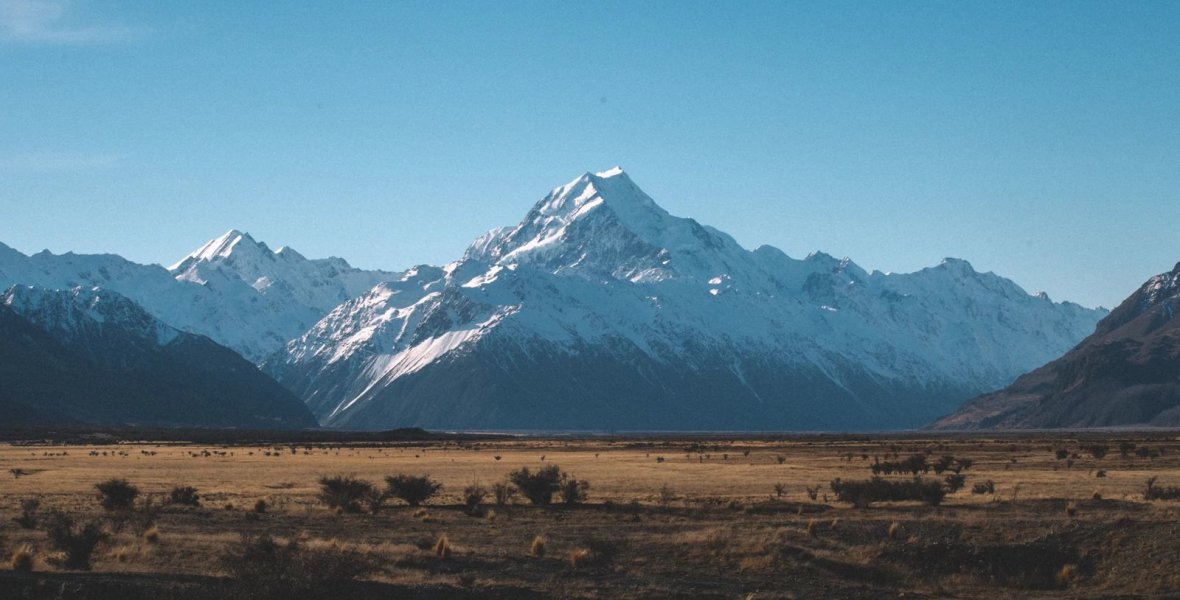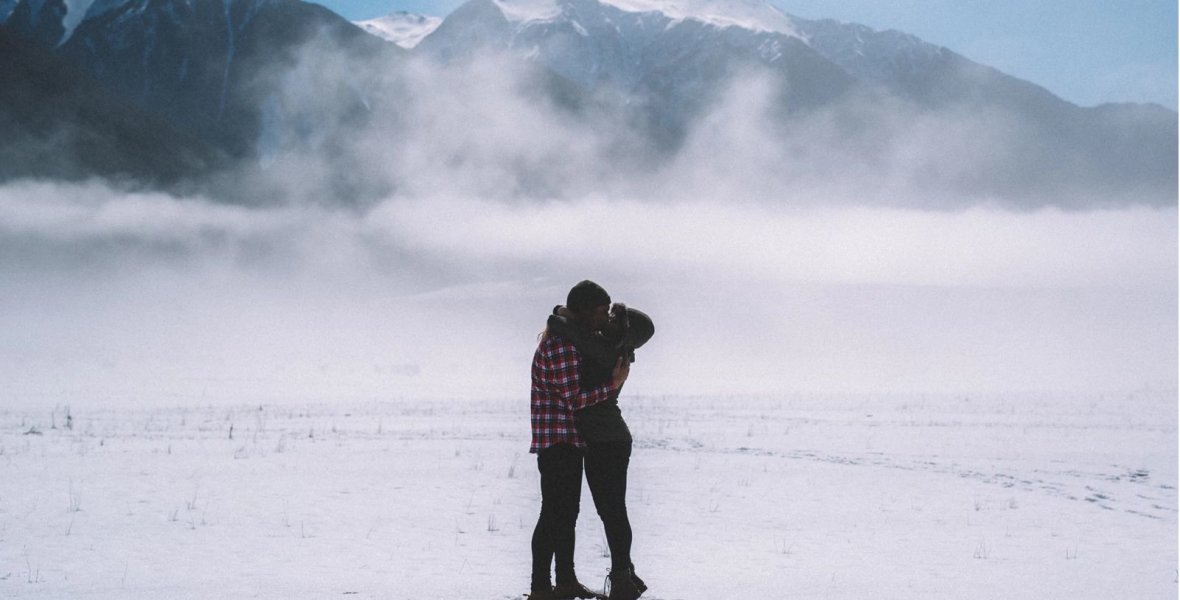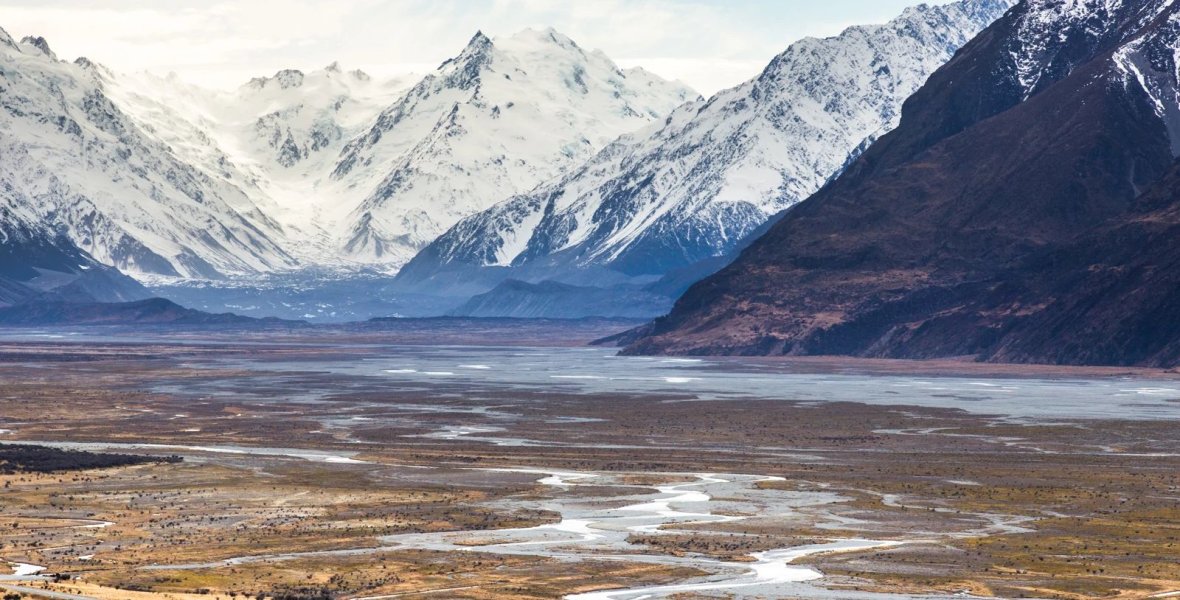


Join thousands of fellow campervan travellers
Sign up for our Britz newsletter to receive inspirational travel content and awesome deals, and we'll send you a copy of our Ultimate RV guide!
Thanks
Please confirm subscription in your email.
Everything you need to know before camping in a New Zealand national park
Camping in a New Zealand national park is a rewarding experience, but it requires some essential knowledge.
TOP TIP: See the location of each park with this New Zealand national parks map.
Familiarise yourself with the rules
It’s a good idea to familiarise yourself with the specific camping rules and regulations for each national park you plan to visit. Some parks require permits or have restrictions on camping locations and durations. Follow all guidelines to help preserve the natural environment and ensure a positive camping experience.
 Image: Tourism New Zealand
Image: Tourism New Zealand
Leave no trace
Always adhere to the Leave No Trace principles by properly disposing of all waste, including grey water, toilet waste, and rubbish. Make use of designated dump stations for safe and responsible waste disposal. This way, we can all do our bit to care for New Zealand’s environment and the special wildlife that call it home.
We encourage you to join us in upholding New Zealand's Tiaki Promise and commit to preserving the beauty of our camping sites for future generations.
TOP TIP: Download the thl Roadtrip app. This handy, free app is a must-have for motorhome travellers. Use it to find DOC dump stations as well as campsites, free camping areas, petrol stations, and pretty much everything else you need as you explore New Zealand.
Check the weather
New Zealand's weather can be unpredictable, even in summer. Remember to check the weather forecast and be prepared for changes in temperature, rain, and wind. It’s also important to pack appropriate clothing and gear to stay comfortable and safe.
Take the relevant safety precautions
Before you head off into one of New Zealand’s national parks, it's vital to prioritise your safety. Begin by researching hazards and safety precautions relevant to each park you plan to visit. Familiarise yourself with potential risks, such as avalanches in alpine regions, river crossings, or encounters with local wildlife.
Ensure you are equipped with the necessary safety gear, including a well-stocked first aid kit, sturdy footwear, and appropriate clothing for changing weather conditions. Additionally, consider carrying communication devices, such as a satellite phone or a personal locator beacon. By taking these essential safety precautions, you can enjoy your camping experience with peace of mind and fully embrace the natural wonders that New Zealand's national parks have to offer.
TOP TIP: Check out our handy guide on what to pack for a campervan road trip.
Types of camping in national parks
In New Zealand's national parks, you'll find a range of camping options. Here are some of the most common:
Department of Conservation (DOC) huts/campsites
The Department of Conservation (DOC) manages a network of huts and campsites in national parks. DOC huts are basic shelters located in remote areas and are primarily used by trampers and hikers. These huts offer bunk beds, cooking facilities, and sometimes heating, providing a more sheltered accommodation option.
DOC campsites are located in various scenic spots throughout the national parks and offer a range of facilities from basic, through to serviced.
Basic campsites
Basic campsites are ideal for those seeking a more rugged and ‘back-to-nature’ camping experience. They are often free to use with minimal facilities, such as pit toilets and non-powered sites. They may or may not have running water.
Standard campsites
Standard campsites are usually unpowered with toilets and cold running water. They sometimes have BBQs, picnic tables, and rubbish bins available. Standard campsites provide a comfortable camping experience while still maintaining a close connection with nature. These campsites are suitable for campers who prefer a balance between facilities and the natural environment.
Serviced campsites
Serviced campsites provide a higher level of comfort and convenience and therefore cost more than a basic or standard site. They often have amenities such as hot showers, kitchen facilities, and powered sites for campervans. Serviced campsites are suitable for those who prefer to have access to modern facilities.
 Image: Tourism New Zealand
Image: Tourism New Zealand
Explore New Zealand’s national parks
Now, let's explore some stunning national parks in New Zealand where camping is available:
Tongariro National Park
New Zealand's oldest national park and a dual UNESCO World Heritage Site, Tongariro National Park is a place of dramatic natural scenery. For this reason, the Tongariro Alpine Crossing is a bucket list adventure for many visitors. Considered to be the best one-day hike in New Zealand, the hike takes you through volcanic landscapes and offers incredible alpine vistas. As you traverse the trail, be prepared to witness the raw power and majesty of volcanic activity frozen in time.
For those looking to immerse themselves in the park's wonders, enjoy a stay at Mangahuia Campsite. This DOC standard site has unpowered sites, a cooking shelter, non-flush toilets, and untreated water.
Abel Tasman National Park
Renowned for its golden beaches and picture-perfect coastal scenery, Abel Tasman National Park’s idyllic setting tops the list as one of the best places to visit in NZ. Sitting right at the top of the South Island, this pristine park spans more than 22,000 hectares of natural beauty. And it’s up to you how you explore it from walking the Abel Tasman Coast Track to paddling through the crystal clear waters on a kayaking tour or relaxing onboard a scenic cruise.
Park up at DOC’s Anchorage Campsite within Abel Tasman National Park. This campsite has fire pits, cooking shelters, flush toilets, sinks, and drinking water.
Kahurangi National Park
Located in the northwest corner of the South Island, Kahurangi National Park spans 450,000 hectares from Golden Bay to the wild West Coast. The park is one of New Zealand’s most diverse with a range of habitats and an abundance of unique flora and fauna. Kahurangi boasts over 570 km of tramping tracks, including the renowned Heaphy Track. This 82 km track is one of New Zealand’s Great Walks, taking hikers through rugged landscapes, craggy ranges, native palm-filled valleys, and spectacular coastline. Once a significant Māori trading route, the Heaphy Track now entices adventurers of all ages, with the option of completing it in 5-6 days or embarking on shorter day trips from nearby towns. Mountain biking enthusiasts can also tackle this challenging trail from May to November.
Park up alongside the river in a serene forest setting at DOC’s Kōhaihai Campsite. This standard campsite includes flush toilets, barbecue facilities, and untreated water.
Mount Cook National Park
Deep in the heart of the Southern Alps, Aoraki/Mount Cook National Park is a rugged expanse of ice and rock. The park's remote location, free from light pollution, makes it a premier destination for stargazing. Marvel at the crystal-clear night sky framed by towering mountain ranges. Glaciers, such as the magnificent Tasman Glacier, shape the park's landscape, covering 40 per cent of its terrain. Aoraki/Mount Cook National Park is not only a haven for unique alpine plants, including the iconic Mount Cook lily, but also hosts a diverse range of birdlife. Keep an eye out for mischievous kea and the rare kakī/black stilt.
Settle in for the night at DOC’s White Horse Hill Campground. This standard campsite offers a cooking shelter, flush toilets, and treated water.
 Image: Tourism New Zealand
Image: Tourism New Zealand
Fiordland National Park
A treasured natural icon and UNESCO World Heritage site, Fiordland National Park is home to sprawling mountains, dense forests, and pristine alpine lakes. Encompassing 1.2 million hectares of beautiful landscapes, Fiordland remains challenging and wild. Early Māori cherished the region for its hunting, fishing, and the precious takiwai (jade) found here. Today, Fiordland National Park is renowned for its breathtaking collection of fiords. Often called ‘sounds’, these showcase the extraordinary beauty of ice-carved valleys flooded by the sea. Marvel at the stunning Milford Sound, hailed as the 'Eighth Wonder of the World' by Rudyard Kipling. Explore the depths of Doubtful Sound, the deepest of New Zealand's fiords. Immerse yourself in this majestic realm of waterfalls, snow-capped peaks, and magnificent wilderness, where nature's wonders unfold at every turn.
Relax and get away from it all at the Henry Creek Campsite. Park up beside picturesque Lake Te Anau – the perfect stop on your way to Milford Sound. This standard campsite includes non-powered sites, non-flush toilets, and stream water.
Can you explore New Zealand’s national parks by campervan? (H3)
Travelling New Zealand in a campervan is the perfect way to explore our national parks. Campervan travel offers the freedom to create your own itinerary and immerse yourself in the country's breathtaking sights. Discover the perfect balance between adventure and relaxation as you explore the diverse national parks, each boasting its own unique charm and a myriad of activities to suit all interests.
Wherever you travel in New Zealand, you will need to check your route to ensure the roads are sealed. Britz campervans can only be driven on sealed/bitumen or well-maintained roads. The only exceptions to this are well-maintained access roads of less than 12 km to recognised campgrounds and major NZ tourist attractions. Find out more about campervan road restrictions in New Zealand.
Ready to explore New Zealand’s national parks?
There’s certainly plenty to see, do, and experience in New Zealand’s national parks – and all without having to drive too far from the city. And there really is no better way to see and do it all than to hire a Britz motorhome. Explore the rugged beauty, take in incredible sights, and meet our amazing wildlife, all while enjoying the comfort and freedom of a campervan.
At Britz, we offer the best campervan hire options. Choose from a wide range of motorhomes and campervans perfect for your next New Zealand road trip. Book your camper online and pick it up from our Auckland, Christchurch, or Queenstown branch and get ready to hit the road!
.jpg)